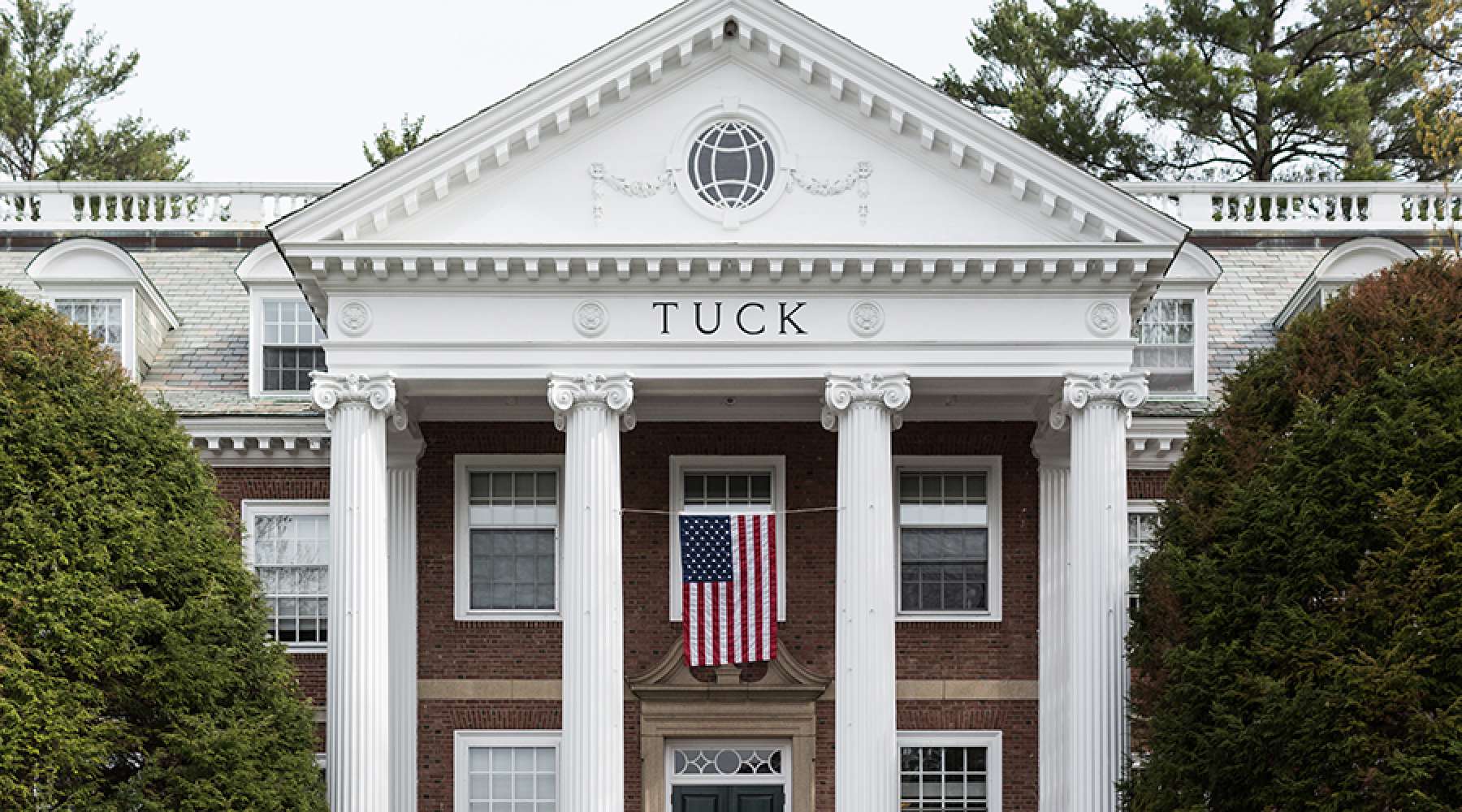
Like many veterans, my decision to leave the military and go to business school was not an easy one to make. After choosing this course, deciding where to spend those formative two years for my MBA was also tough. Now, with the experience of two academic terms and 8 months living in the Upper Valley, I can say with confidence that Tuck is the right place for me to transition from the Marine Corps to a career in business. As I reflect on why, three key factors stand out. Here they are:
Tuckies take time out of their day to help each other both inside and outside of class. Business school is difficult. Tuck’s academic curriculum is rigorous. The same is true among other top MBA programs. What is unique to Tuck however is the patience and support you get from your classmates. For example, like most veterans, when I arrived at Tuck, my experience using spreadsheets was limited to making rosters and lists. Similarly, I couldn’t have told you the difference between a debit and a credit. I found that my classmates were more than willing to take time out of their day to sit down with me and explain how to build a complex model in Excel or how to build a statement of cashflows. Everyone knows that Tuckies are nice, but this “niceness” isn’t limited to exchanging pleasantries in the hallways. It means that we take time to help each other.
Tuck has a difficult core curriculum. In my view, this offers two key benefits. First, it gives all students the building blocks and frameworks necessary to succeed first in recruiting, then during internships, and finally as graduates. Second, it creates a challenging environment which brings the class together as a unit. The fall terms are not officer candidate school or boot camp, but they are extremely tough. On top of the time spent in class and on homework and group projects, fall recruiting is in full swing by the end of September. The fall term is an intense time for all Tuckies and because of this, it brings us together. Just like the military, one of the best ways to build unit cohesion is by giving that unit a challenge. Over the course of fall term, I saw my study group, my section, and my class come together by overcoming many challenges. These challenges ranged from accounting homework to consulting “case prep” to mounting a comeback at a Tuesday night tripod hockey game.
I like to spend a lot of my free time in the outdoors. I was worried that between the many obligations of business school—class, recruiting, and social—I would not have time to get outside. At Tuck, I quickly realized that this would not be a concern. In the Upper Valley, the outdoor access is literally in your backyard. I routinely wake up early and take my two dogs on trail runs right out my back door. In the fall, I went duck hunting with other Tuckies before class a couple of times. This winter, I went skiing at Killington before Thanksgiving, then a dozen more times this season. I climbed the highest peak in Vermont and mountain biked on snow covered trails. The unparalleled access to the outdoors has allowed me to reflect on my experiences and enjoy myself when I have free time. No other business school of this caliber would have allowed me to do all this without getting on a plane.
To learn more about what distinguishes Tuck among top-tier business schools and what you need to know to transition from the military into the right MBA program, attend Tuck’s Military Visit Day on April 14-15. During the event, you’ll get a chance to see what distinguishes Tuck among top-tier business schools and what you need to know to transition from the military into the right MBA program. Register here.
 Jacob Roche T’20 graduated from the Naval Academy in 2011 and spent seven years in the Marine Corps as an artillery officer. Jacob was first stationed in Twentynine Palms, California for three years. He deployed once to Afghanistan as an artillery forward observer with 3rd Battalion, 7th Marine Regiment. Jacob then served as an officer recruiter (OSO) for three years in Minneapolis, MN. He will be interning with McKinsey in Minneapolis, MN this summer.
Jacob Roche T’20 graduated from the Naval Academy in 2011 and spent seven years in the Marine Corps as an artillery officer. Jacob was first stationed in Twentynine Palms, California for three years. He deployed once to Afghanistan as an artillery forward observer with 3rd Battalion, 7th Marine Regiment. Jacob then served as an officer recruiter (OSO) for three years in Minneapolis, MN. He will be interning with McKinsey in Minneapolis, MN this summer.